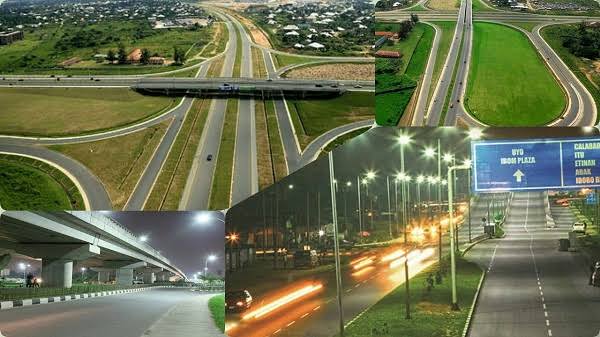
Sanitation and hygiene are vital for any community’s health, environment and overall quality of life. Clean surroundings curb the spread of diseases, boost tourism and investment, and reflect positively on residents’ habits. Unfortunately, many parts of Nigeria still show unhygienic conditions due to ineffective waste disposal systems, poor drainage and low public awareness.
The Nigerian government has been promoting initiatives like Clean Nigeria campaigns to change public attitudes and behaviors towards better sanitation across all states. Some state governments have also increased investments in waste management technology and infrastructure over the years. However, more concerted efforts are needed to elevate all Nigerian states to excellent cleanliness levels.
This article highlights the top 10 cleanest states in the country going by factors like waste collection efficiency, drainage systems, drinkable water availability and residents’ hygiene habits. Though no Nigerian state has attained global clean city standards yet, some are ahead of their peers in key metrics.
Top 10 Cleanest States in Nigeria
1. Lagos
Lagos State ranks among the cleanest not just in Nigeria but across Africa. Being a thriving commercial hub and former capital, Lagos has invested heavily in improving sanitation within the metropolis.
The state operates an integrated waste management system that includes over 16,000 street sweepers and 350 official dumpsites. Household waste collection coverage was 35% as of 2018, the highest nationally. Major highways, streets and public areas like parks stay well-swept daily.
The Lagos Waste Management Authority (LAWMA) runs an efficient waste disposal scheme complete with recycling facilities and public trash cans. Open defecation is rare as most houses have decent toilets. Lagos also passed a law banning street trading to curb littering in public spaces.
However, more work needs to be done to clear clogged drains and expand piped water connections in slums. But overall, Lagos remains the frontrunner in sanitation improvement in Nigeria.
2. Abuja
Nigeria’s capital Abuja makes it to number two on this list. The well-planned nature of Abuja as a modern city right from inception contributes immensely to its clean credentials.
Open waste dumping is prohibited within the city. Trash cans dot most streets for pedestrian use while households get regular waste collection services. Public areas like markets feature adequate sanitation facilities and maintained drainage systems.
The Abuja Environmental Protection Board (AEPB) is responsible for keeping the capital clean. All residents must package their waste appropriately before disposal else face fines. The city administration also bans indiscriminate street hawking and uproots street traders clogging walkways.
Drinking water supply in Abuja is above par compared to other states though not 100% coverage yet. Overall, conscious urban planning coupled with strict sanitation law enforcement makes Abuja stand out as one of Nigeria’s cleanest cities.
3. Rivers
Rivers State, particularly the capital Port Harcourt, has made big strides in improving waste management and drainage systems. The Greater Port Harcourt City project specifically emphasized urban sanitation within the riverine capital.
Most streets and markets in Port Harcourt have designated trash bins and active cleaners. Household waste collection hovered at 26% in 2018 based on official statistics. The state also budgets funds annually for desilting and clearing water channels which reduces flooding during rains.
Open defecation is relatively low in Rivers’ urban areas. The privately-run Port Harcourt Water Corporation provides clean, drinkable water to the city residents. However, more efforts are still required to enlighten residents on hygiene, increase toilet access and elevate waste collection rates. Generally, Rivers is ahead of most other states cleanliness-wise.
4. Delta
Delta State, with capital Asaba, is in Nigeria’s oil-rich South-South region. While oil pollution has affected parts of the state’s landscape, the urban settings feature well-organized waste management.
The Delta State Waste Management Board coordinates sanitation in cities like Asaba, Warri and Ughelli among others. A reasonable number of households enjoy doorto-door trash collection services. There are also thousands of street sweepers keeping roads litter-free daily.
Delta has one of the lowest open defecation rates nationally as most residents use toilets at home. Streams of flowing wastewater are not very common. However, management of industrial and hazardous waste requires more vigilance by the authorities. But Delta’s urban areas overall display good hygiene and sanitation habits.
5. Akwa Ibom
Reputed as Nigeria’s cleanest oil-producing state, Akwa Ibom has invested substantially in environmental sanitation over the past decade. The state’s waste management agency runs an integrated system incorporating public bins, doorto-door collection and dumpsites maintenance.
The capital Uyo is noticeably clean with neatly arranged public bins, regular drainage desilting and hundreds of street sweepers. Toilet access in Akwa Ibom is also above average nationally. Potable water supply remains a challenge though especially in rural areas.
Local bodies like the Clean Akwa Ibom Initiative (CAII) spearhead public education on better hygiene through clean-up exercises and awareness campaigns. Overall, Akwa Ibom is relatively clean, though sustaining the culture without laxity is key.
6. Enugu
Known as Nigeria’s coal city, Enugu has rebranded itself as an emerging modern city with improved sanitation standards. Efficient waste collection within the metropolis is handled by the Enugu State Waste Management Authority (ESWAMA).
Areas like the GRA, New Haven and Independent Layout boast clean streets, regulated dumping and reliable water supply. Residents near major roads get regular waste collection services. Public sensitization against indiscriminate littering is also active through the Our State Our Responsibility initiative.
However, more efforts are needed across low income areas regarding toilet access, drainage and general hygiene habits. But Enugu’s cleanliness metrics show positive momentum indicative of its gradual sanitary transformation.
7. Ekiti
The state of Ekiti has gained popularity as one of Nigeria’s cleanest states. The capital Ado Ekiti especially stands out for its clean roads, organized waste disposal and decent sanitation infrastructure.
Ekiti runs an effective waste collection program that serves its urban population. Public littering attracts fines and stern warnings to maintain clean streets. The state also has one of the lowest open defecation rates in the country.
Drainage systems are well-constructed to minimize flooding during heavy rains. Ekiti still needs more awareness on public hygiene though. But its existing cleanliness policies have uplifted the state above many others nationally.
8. Kaduna
Kaduna used to be notorious for poor sanitation standards. But a shift in government focus has remarkably improved its cleanliness metrics recently.
A Sanitation Marshals initiative was formed to enforce sanitation laws against public littering and haphazard waste disposal. Waste management improved with several neighborhoods getting door-to-door services. Sewage systems were upgraded and open defecation discouraged through sensitization.
Public areas like markets feature more trash cans and clean-up marshals. However, sustaining the cleanliness momentum and expanding services to low income areas remains a key priority. On the whole, Kaduna is gradually joining the ranks of Nigeria’s neatest states.
9. Imo
Imo State has its capital Owerri to thank for its good sanitation reputation. Owerri municipal practices like daily street sweeping, regulated waste disposal and public toilets availability make it one of Nigeria’s more hygienic capital cities.
The state-run Imo State Environmental Transformation Commission (ISETF) drives better waste management through increased funding and legislation. Owerri specifically banned street hawking to control littering. Public sewage systems are also notably better than other southern cities.
However, waste collection services need to expand beyond just the city. Rural communities grapple with poor toilet access and water supply. But Owerri gives Imo an edge that inflates the state’s overall clean scorecard.
10. Ogun
Lastly, Ogun State makes it into the top 10 owing to the rapid urbanization of cities like Abeokuta, Sagamu and Ado-Odo. As residential areas grow, public sanitation has received more attention from the state authorities.
Ogun has increased budgetary allocation for waste management exponentially within a decade. More neighborhoods now enjoy scheduled waste collection with designated dumpsites. The state also runs campaigns against open defecation while improving toilet access and piped water supply.
Nonetheless, keeping pace with waste generation from its booming population remains challenging. Bringing rural areas to par hygiene-wise also lags behind. But Ogun’s cleanliness outlook remains well above average, albeit requiring continued diligence.
Conclusion
In summary, attaining clean state status in Nigeria requires huge investment, practical policies and public participation. These top 10 states show that investing in waste collection logistics, drainage systems and hygiene campaigns positively uplifts cleanliness ratings. However, the pace and completeness of sanitation interventions across all communities still varies.
Sustaining already achieved cleanliness requires unrelenting governmental focus on better waste disposal, public sensitization and sanitation infrastructure as population and urbanization grows. While celebrating the front-runners, Nigerian agencies must increase assistance to states lagging in hygiene metrics for an eventual nationwide cleanliness reality. With more work, the clean state title can eventually rotate among all 36 Nigerian states in the future.



